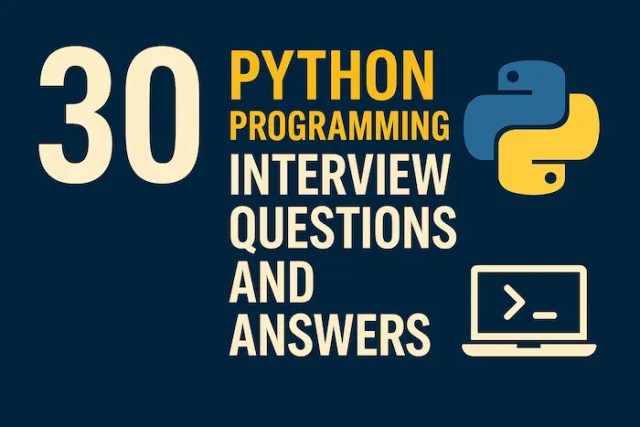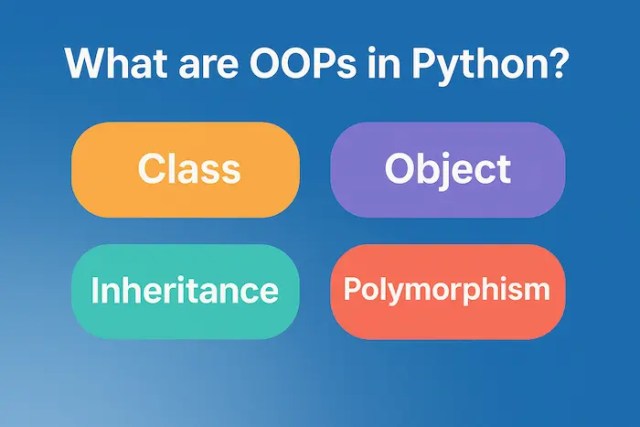- Email: info@craw.sg
- Phone: +65 9797 6564

If you want to start a career as a coder, you need Python programming skills. You must pass the interview by answering all the questions from the interviewer. However, you must be well prepared beforehand.
For that, you can read this amazing article based on “Python Programming Interview Questions and Answers” for IT Aspirants who want to clear the interview related to the mentioned topics. What are we waiting for? Let’s get straight to the point!

Python is a flexible programming language that is well-known for being simple to use and readable. The following are some of the popular applications of Python in the world of technology:
The following are the benefits of using the Python language as a tool in the present scenario:
For the most part, Python is an interpreted language. This eliminates the need for a separate compilation step and allows Python code to be run line by line. To maximize performance, some Python implementations, such as PyPy, employ a just-in-time (JIT) compiler.
In contrast to an immutable data type, which cannot be altered once created, a mutable data type can be altered after creation.

In Python, lists are heterogeneous, allowing elements of different data types, whereas arrays are homogeneous, allowing only elements of the same data type.
Python data structures, called lists and tuples, are used to hold collections of objects. Additionally, tuples are immutable, which means they cannot be altered once created, whereas lists are mutable, which means they can be altered after creation.
When you attempt to access a dictionary with a nonexistent key, you get a KeyError. I can catch the exception and gracefully handle a KeyError by utilizing a try-except block.
Using the Python technique known as “monkey patching,” you can change the behaviour of existing code while it’s running by substituting new implementations for functions or methods.
Following are the definitions of the mentioned things related to Python:
The self keyword in Python refers to the instance of a class that is currently in use, giving access to its methods and attributes.
11. What are global, protected, and private attributes in Python?
Following are the definitions of the mentioned things related to Python:
12. What are modules and packages in Python?
Packages are groups of modules arranged into directories, whereas modules are separate Python files with variables, classes, and functions.
13. How do you prepare for a Python interview?
Review the basics of Python, practice solving coding problems, and get ready for typical interview questions.
14. What are OOPs in Python?

Object-oriented programming, or OOPs in Python, is a programming paradigm that groups code into objects with properties and methods.
15. What are decorators in Python?
Functions known as decorators add functionality to other functions or classes without altering their source code by changing how they behave.
16. What are context managers in Python, and how are they implemented?
By automatically acquiring and releasing resources, even in the event of exceptions, Python context managers (using the with statement) guarantee appropriate resource management. The __enter__ and __exit__ methods of a class are used to implement them.
17. How to clear a Python interview?
Demonstrate solid Python foundations, problem-solving abilities, and the capacity to apply them to real-world situations to pass a Python interview.
18. What are the data types in Python?

The following are the types of data in Python:
19. How do you clear syntax in Python?
You can clear syntax in Python in the following ways:
20. How to crack Python coding?
Learn Python coding by solving coding challenges, grasping fundamental ideas, and practising frequently.
21. Is Python very difficult?
No, Python is a fantastic language for beginners because of its reputation for being easy to understand and simple.
22. How to learn Python quickly?
To learn Python fast, practice frequently, adhere to structured tutorials, and work on coding projects.
Related Link: How to Learn Python Step-By-Step in 2025?
23. How do you crack coding interviews easily?
Although there isn’t a quick fix, you can greatly increase your chances of passing coding interviews with regular practice, comprehension of data structures and algorithms, and strong problem-solving abilities.
24. Is SQL easier than Python?
In general, SQL is simpler to learn than Python, particularly for simple data manipulation and querying tasks. On the other hand, Python is more adaptable and has a greater range of applications.
25. What is Python used for?
Python programming is used for the following purposes:
26. Is Python easy to get a job with?
Yes, Python’s high demand and versatility make it easier to find employment in a variety of tech fields.
27. Is Python a stressful job?
Project complexity, team dynamics, and deadlines all affect how stressful a Python job is. Compared to other programming jobs, it’s not necessarily more or less stressful.
18. What is next after Python?
Examine more complex Python subjects like web development frameworks, data science, and machine learning, as well as other programming languages like JavaScript, C++, or Java.
29. Which companies use Python?
The following are some of the companies using Python:
30. What jobs use Python?

The following are some of the job profiles after learning the Python programming language:
Now that you have read the 30 Python Programming Interview Questions and Answers, you might have a bit of confidence to crack the interview within minutes. However, if you want to learn more about Python programming properly, you can get in contact with Craw Security, which offers a dedicated training & certification program called “Python Programming Course in Singapore.”
During the training, students will be able to test their knowledge & skills practically under the guidance of experts in Python programming. With that, they will be able to ask for online sessions.
After the completion of the Python Programming Course in Singapore offered by Craw Security, students will receive a certificate validating their honed knowledge & skills during the sessions. What are you waiting for? Contact Now!